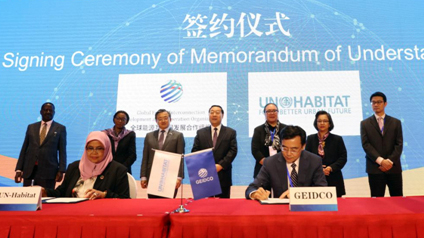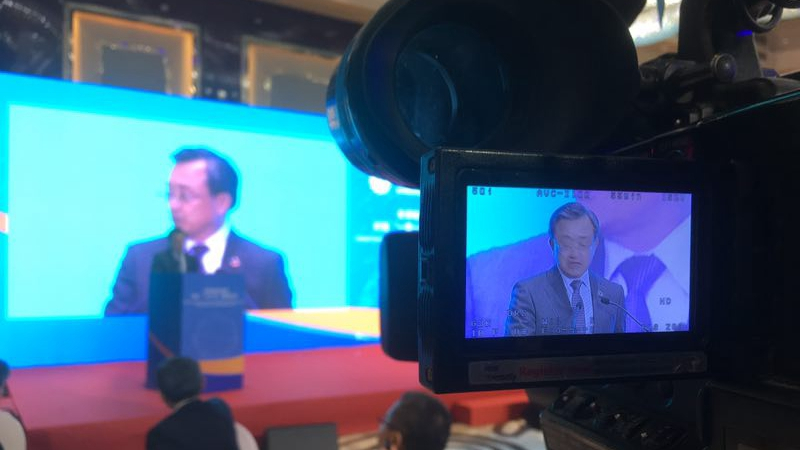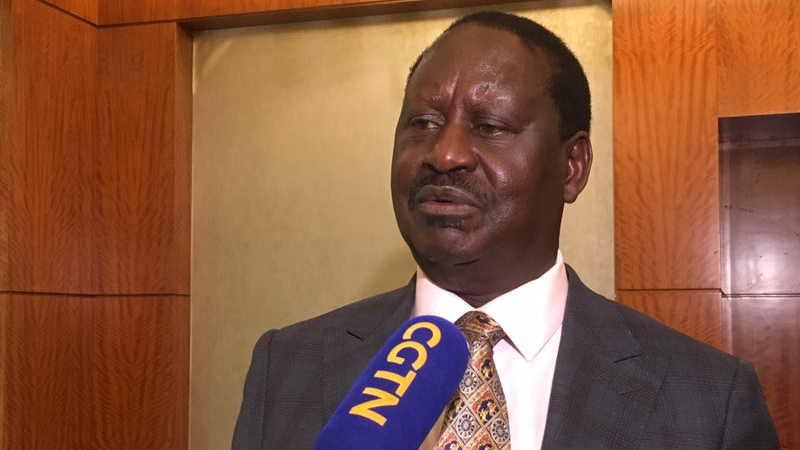
Economy
14:11, 26-Apr-2019
Energy cooperation agreements signed at BRF side event
Updated
18:36, 28-Apr-2019
Sun Ye, Gao Boyuan
01:34

More results are in from the ongoing second Belt and Road Forum for International Cooperation in Beijing. At a side event hosted by the Global Energy Interconnection Development and Cooperation Organization on Thursday evening, six agreements or MOUs on energy interconnection were signed.
The agreements were signed between GEIDCO, UN agencies, governments, and international organizations in an effort to promote energy interconnectivity.
Liu Zhenmin, Under-Secretary-General of the United Nations, told CGTN during the event that energy interconnection, as part of the Belt and Road Initiative, is key to global growth.

Liu Zhenmin, Under-Secretary-General of the United Nations, at the second Belt and Road Forum for International Cooperation in Beijing. / CGTN Photo
Liu Zhenmin, Under-Secretary-General of the United Nations, at the second Belt and Road Forum for International Cooperation in Beijing. / CGTN Photo
“At the United Nations, we believe the Belt and Road Initiative will help contribute to achieving the UN's development agenda for 2030. In today's economic climate, while we are seeing cases of protectionism, the Belt and Road Initiative attests to a strong global need to cooperate and grow together,” Liu said.
The agreements signed include a three-party agreement between Ethiopia's Ministry of Water, Irrigation and Electricity, the Gulf Cooperation Council Interconnection Authority (GCCIA), and GEIDCO (Global Energy Interconnection Development and Cooperation Organization).
Seleshi Bekele, Ethiopian Minister of Water, Irrigation and Energy, said the agreement will help change the country's energy mix.
“The biggest benefit coming from the agreement: we will tap into great potential and as we shift to a completely clean energy structure, the agreements will help,” he told CGTN.
Ralla Amolo Odinga, High Representative For Infrastructure Development at The African Union Commission, said energy interconnection could lead Africa to real growth.

Ralla Amolo Odinga, High Representative for Infrastructure Development at The African Union Commission./ CGTN photo
Ralla Amolo Odinga, High Representative for Infrastructure Development at The African Union Commission./ CGTN photo
“Africa must grow as one, not individually,” he told CGTN. “The biggest problem inside Africa is that even though one country may have more power to share, there is no way for other energy-starved countries to get it.”
“And having enough energy is the first step to developing everything else.”
Zhou Yuanbing, Director General at the Economic And Technology Research Inst. of Geidco, points to the same problem.
“In Africa, the thing that keeps many resource-rich countries from real growth is their poor energy infrastructure. This problem is evident for example in western Africa. ”
“The solution could be for them to get into an energy-connectivity-network,” Zhou said .
Getting connected in a clean energy network is becoming a gradually popular choice. According to GEIDCO, it's estimated that 2.7 trillion U.S. dollars worth of investment will go into building an energy-interconnection network by 2050.

SITEMAP
Copyright © 2018 CGTN. Beijing ICP prepared NO.16065310-3
Copyright © 2018 CGTN. Beijing ICP prepared NO.16065310-3